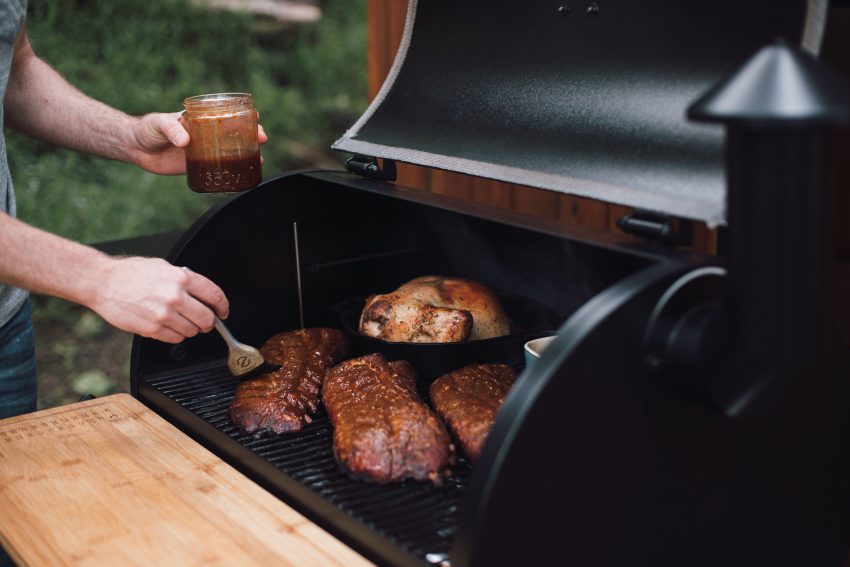Like many men of a certain age, I’ve recently taken up the hobby of smoking meat. With the gift of a large pellet smoker by my spouse and the recipes and coaching of my brother-in-law, I am in my second summer of preparing pulled pork, smoked chicken and salmon, and tender slices of brisket for friends and family.
The Ins and Outs of Smoking Meat
I’ve quickly discovered that smoking is both art and science. There’s an artistry to choosing well marbled and fat-capped meat, preparing rubs and seasonings, and cooking the perfect bark—the exterior layer of crispy goodness on a pork shoulder or brisket. But the science of smoking meat is far more technical and complicated than I expected. One factor I learned about early on was how much the ambient temperature affects the process. The same piece of meat can cook much more quickly on a hot summer afternoon than on a brisk November morning. Knowing how this difference impacts the cooking process, and adjusting for it, is important to becoming an expert meat smoker.
What’s your internal temperature?
So it is with our spiritual lives. Our internal temperature is affected by the temperature around us. It’s not only the Holy Spirit and our own spiritual disciplines, but also the environment around us, which fosters a warm and tender heart. More specifically, one oft-overlooked factor in how we grow spiritually is whether we are surrounded by warm encouragers or people best described as cold and harsh. Failure to account for this can negatively impact our spiritual growth.
The Company You Keep
Paul speaks to this principle in 1 Thessalonians 5 when he reminds Christ-followers to “belong to the day” rather than the night, to “encourage one another and build up each other”, and to “hold fast to what is good; abstain from every form of evil.” These admonitions are the context for 1 Thess. 5:11, arguably the most famous verse of this epistle: “Rejoice always, pray without ceasing, give thanks in all circumstances; for this is the will of God in Christ Jesus for you.”
In this chapter, Paul envisions a spiritual life wholly devoted to the hope found in Christ, made easier by the community of believers who surround us. Inasmuch as we can control our environment, we ought to keep company with persons who encourage us in faith.
Reading our Own Thermometer
When our environment is not in our control, we must adjust the temperature we can control—our own. When I smoke meat I have a good meat thermometer which I check at least every hour to make sure everything is still cooking. Paying attention allows me to adjust along the way for environmental factors that I can’t control, like the weather.
Similarly, it’s important to pay close attention to our own spirituality. Are we continually warming to the Holy Spirit’s guidance, or have we stalled (or worse, begun cooling off)? Are we noting how different environments—the company we keep and the places we spend time in—help or hinder our growth in Christ? We cannot always control the ambient temperature, but we can monitor our own internal temperature and adjust as needed to make ourselves more warm and tender-hearted every hour.
 Author: The Rev. Erik Hoeke is a writer at Pittsburgh Theological Seminary and an ordained minister in the United Methodist Church with 14 years of pastoral ministry experience in Southwestern Pennsylvania.
Author: The Rev. Erik Hoeke is a writer at Pittsburgh Theological Seminary and an ordained minister in the United Methodist Church with 14 years of pastoral ministry experience in Southwestern Pennsylvania.

